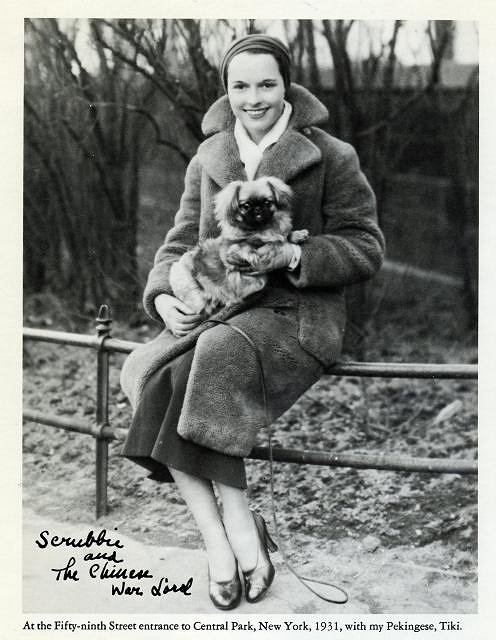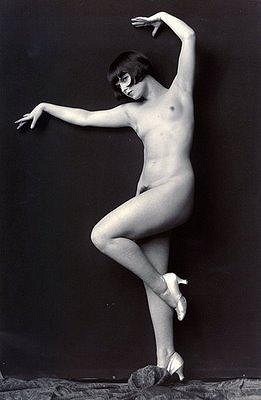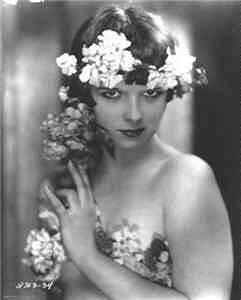Tiki Central / General Tiki
Popularity of the word
Pages: 1 15 replies
|
T
TikiTacky
Posted
posted
on
Fri, Dec 17, 2010 11:49 AM
Google released a tool that let's you search through 12,000,000 books going back to the mid 1600s for specific words or phrases. You can easily identify when things came into the conscious mainstream as evidenced thus: http://ngrams.googlelabs.com/graph?content=Tiki%2C+tiki&year_start=1800&year_end=2000&corpus=0&smoothing=3 |
|
B
bigbrotiki
Posted
posted
on
Fri, Dec 17, 2010 12:59 PM
Very cool! Keep in mind though that books represent "high culture" in comparison to popular culture. I have no idea where the peaking of "Tiki" would have come from in the 30s, but the peak from the late 40s to throughout the 60s must have to do with the popularity of Kon Tiki. Note the decline in the 70s, and the low period in the 80s and 90s, then the steady climb around 2000, if you extend the graph to 2008: http://ngrams.googlelabs.com/graph?content=Tiki&year_start=1800&year_end=2008&corpus=0&smoothing=3 In the 50s and 60s, the word and concept of Tiki was not popularized in books, but in "low culture" items like menus, signs, party products and the like. Books and magazines ignored popular fads like Tiki style back then, that's why it came and went unrecognized. |
|
B
bigbrotiki
Posted
posted
on
Fri, Dec 17, 2010 1:27 PM
Wow, what the hell kind of books were published in the early 30s that made the word peak even way beyond the World bestseller "Kon Tiki" around 1950 !!? : http://ngrams.googlelabs.com/graph?content=Tiki&year_start=1930&year_end=2008&corpus=0&smoothing=0 Tiki was also used as a first name. Actress Louise Brooks' dog was named Tiki, here they are in 1931:
...but that can't be it. :) Hmmm.... |
|
HJ
Haole Jim
Posted
posted
on
Fri, Dec 17, 2010 11:00 PM
Huh? |
|
STCB

Sabu The Coconut Boy
Posted
posted
on
Fri, Dec 17, 2010 11:12 PM
I think a lot of the pre-1940s occurrences of the word might be misspellings of the famous story "Rikki Tikki Tavi" by Rudyard Kipling. I often come across references where the double "kk" has been dropped to a single "k". [ Edited by: Sabu The Coconut Boy 2010-12-17 23:14 ] |
|
J
JOHN-O
Posted
posted
on
Fri, Dec 17, 2010 11:32 PM
Huh, that doesn't even look like my Weesie !! Now that she's placed in the appropriate Tiki context, I can see how Louise Brooks can be considered one of the original Pre-Tiki Exotica girls (Theda Bara was too scary looking). That lucky dog.
OK, back to the English lesson... [ Edited by: JOHN-O 2010-12-18 09:25 ] |
|
B
bigbrotiki
Posted
posted
on
Sat, Dec 18, 2010 7:34 AM
But the Tikki in that title couldn't have been misspelled more than it was spelled correctly, so that can't be it either. Here is a list of 1930s bestsellers: http://www.caderbooks.com/best30.html Two year bestseller "The Good Earth" takes place in China, "Anthony Adverse" in Cuba, Africa, Italy and Paris, so no South Sea island showplaces there. I can only fathom that some book had a character named Tiki, and that it is so outdated nowadays that no one mentions it. Nothing jumps out at me in the non-fiction lists either. Couldn't have been "Boners: Being a Collection of Schoolboy Wisdom" :D |
|
BPB
Bay Park Buzzy
Posted
posted
on
Sat, Dec 18, 2010 10:48 AM
A few from that time period were from collections of Polynesian mythology. But for the the majority of uses... It looks like there was a lot of use of the word "tiki-tiki" in medical journals at the time. "An alcohol extract of rice polishings (tiki tiki) has been used successfully for some purposes. ... Mixtures of tiki tiki and liver extracts proved more useful. "University of Missouri--Columbia. Agricultural Experiment Station - 1931 "In testing for vitamin G (B2) the only modification of the original diet was the addition of tiki-tiki extract as a ... The tiki-tiki was obtained from the Philippine Islands. It is an extract prepared from rice polishings and is used ... " Georgia Experiment Station - 1931 - It was used that way in many journals throughout the world at the time. It probably spiked because it was used twice each time, and again several times in each article. That would up the usage % count. You can see which books it is used in, and he context if you click on the years below the graph. It was also used by the birds of souhern Rhodesia: Buzzy Out! |
|
V
VampiressRN
Posted
posted
on
Sat, Dec 18, 2010 11:52 AM
Not surprisingly "cocktails" follows the same graphic trending. |
|
M
Mo-Eye
Posted
posted
on
Sat, Dec 18, 2010 11:53 AM
Another thing to consider - when I spent a lot of time playing on the google newspaper search, there were a lot of errors made by the OCR technology, usually caused by crappy scans of the original. There were a large number of times were it would mistaken "the" as the word "tiki". Not sure if there is the same problem with the books. So, if you have a collection of items with crappy scans, that could up the percentage of the OCR thinking the word tiki is there. |
|
V

virani
Posted
posted
on
Mon, Dec 20, 2010 4:50 AM
There must be some mistake, because if you look in the period : 1928-1970, 1953 is the biggest one : And, "tiki" with no capital letter is more important in the mid 20's. [ Edited by: virani 2010-12-20 04:59 ] |
|
B
bigbrotiki
Posted
posted
on
Mon, Dec 20, 2010 8:41 AM
Aaw, statistics shmistics, computers don't know! And I must caution again against saying the word being "more important" then: All these graphs measure is the number of times the word occurred in BOOKS -a statistic that is of limited relevance to MID-CENTURY Tiki culture (as opposed to the TIKI REVIVAL, of course :D ) Though the peak in the early 50s must have to do with "Kon Tiki" (on the bestseller list in 1950 and 51), the decline from the mid-50s on clearly diverges from what was actually happening in Polynesian pop culture: The emergence of the Tiki as its figurehead! In that realm, it peaked around 1960. The early 30s peak is not AS pronounced in these graphs, true, but still very noticeable, and curious. There must have been one book that used the word a lot, and perhaps was quoted in others -which book was that? |
|
T
TikiTacky
Posted
posted
on
Mon, Dec 20, 2010 9:48 AM
I checked the actual sources that Google was finding them in. A lot of them were, in fact, magazines (regarding the "high culture vs popular culture" argument). In the early uses during the late 1800s, it appeared to me to primarily be anthropology books discussing the polynesian cultures. The spike during the late 40s and 50s coincides with the publishing of the book "Kon Tiki," which would back up Kirsten's assertion that this book played a large role in the American psyche during that period. Most of the hits from this time are using this term. |
|
B
bigbrotiki
Posted
posted
on
Mon, Dec 20, 2010 10:16 AM
Great! What about the sources in the early 30s then? All anthropological? I still think a spike like that would have to do with a specific work...something akin to the popularity of Margaret Mead's writings. Unfortunately the term Tiki was not used in Samoa. Sorry I did not know about the magazines, all you mentioned above as source above was 12 million books. However, magazines are not really relevant, either: The media in general did NOT recognize Tiki style in its own time. if they noticed it at all, it was usually looked down on, and it also was not referred to as "Tiki style", or mentioned with any other use of the word. if dealt with at all, it was called Polynesian style, South Seas style, or in a few rare instances, Kon-Tiki style. |
|
B
bigbrotiki
Posted
posted
on
Mon, Dec 20, 2010 11:53 AM
To make sure I am not misunderstood, I do NOT mean to dismiss this very fascinating tool of information, I am grateful for the post, and see great use for it in pop culture research. I merely am putting it into perspective to the very specific situation that Tiki style was in, being a pop culture that originated in bars and restaurants, and spread to motels, bowling alleys, apartment buildings and back yards. Where it was a.) not noticed by the media, and b.) primarily a VISUAL culture, with the Tiki IMAGE becoming a pop icon much more than the word did. The buzzword quality of the WORD was utilized by the above establishments too, yes, but did not leak into books or magazines much -unless you count phone books (Yellow Pages), and newspaper/magazine ads. :D |
|
JD

Johnny Dollar
Posted
posted
on
Mon, Dec 20, 2010 12:24 PM
i did a random sampling of some of the older sources, and it appeared that in more than a couple instances, the latin word "tibi" was bring OCR recognized as "tiki.""tibi" is the dative form of you - so if someone gave you a tiki in latin, it would be "do tibi tiki" |
Pages: 1 15 replies



